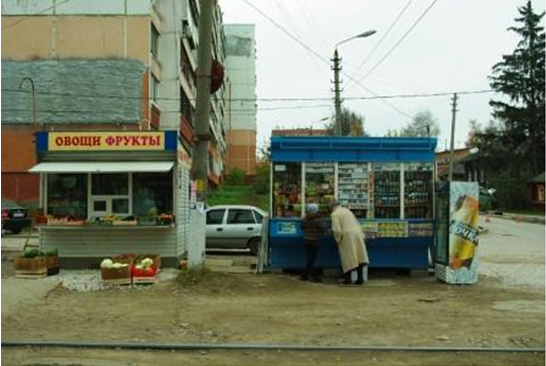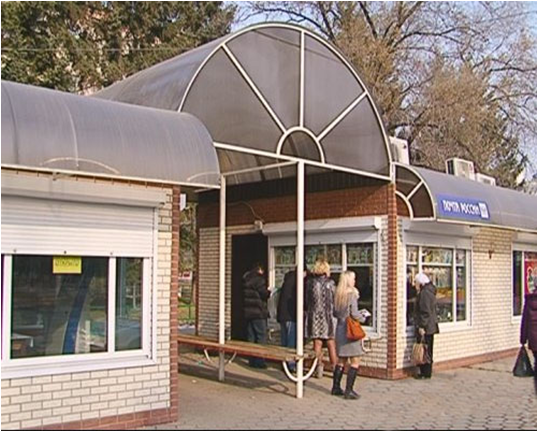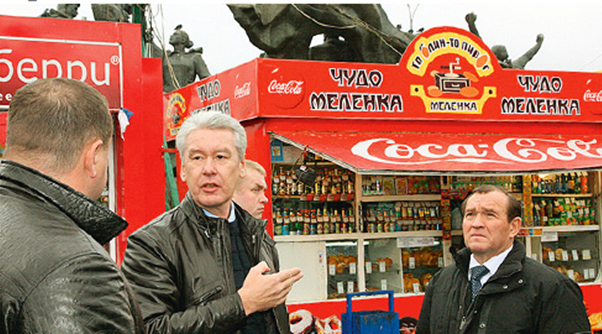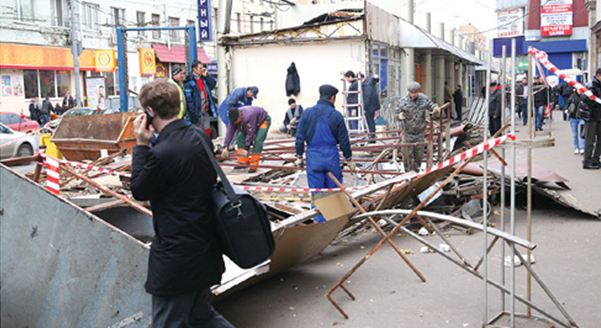According to the Russian tax authorities, 208,000 Russian entrepreneurs closed their businesses between December 2011 and January 2013. Russian media considers the situation to be a real disaster. Latest survey of small businesses showed that more than 65% decreased their operations, 50% laid off employees, and nearly all of them reduced wages.
60-80% of the Russian small businesses are engaged in retail and services.
Since Perestroika, the most typical Russian retail stores are self constructed kiosks, like those shown on the photo below.

Life of the owners of these businesses is not easy. They are robbed by racketeers, by police and by the crowd of corrupted state inspectors. Representatives of government mostly care about the looks of the businesses. Below is a store approved by the authorities of the city of Blagoveschensk as an ideal.

When several years ago Sergey Sobyanin was appointed mayor of Moscow, the first thing he did was demolish about a thousand street kiosks.

Sobyanin orders demolition.

Demolition is in progress.
Nobody cared about either the future of the bancrupted businesmen or about Moscovites losing the main providers of nessesary goods.
Not long ago the right to sell the most profitable goods – tobacco and beer – was taken from the small traders.
There is no real government support for creators of new businesses. The program of small business loans is ineffective. Businessmen claim that it is impossible to start re-payment of the loan in just six months after opening a business.
Every year about three million criminal cases are opened in Russia against the owners of small businesses. In 2011 according to the official statistics, there were about one million of the small business owners (every 6th entrepreneur) in jails.
No surprise that businessmen are closing their legal businesses and joining the army of illegal traders.
The average size of Russian illegal economy is estimated at 30-40% of Gross Domestic Product. In comparison, the share of the illegal economy in the U.S. and Switzerland is about 9%; China – 13.5%; India – 24%.
But now the situation seems to change. Small business owners don’t want to feel guilty without being guilty and wait passively for somebody else to intercede for them. Russian social networks have already released information that entrepreneurs are preparing a complaint to the Constitutional Court.

